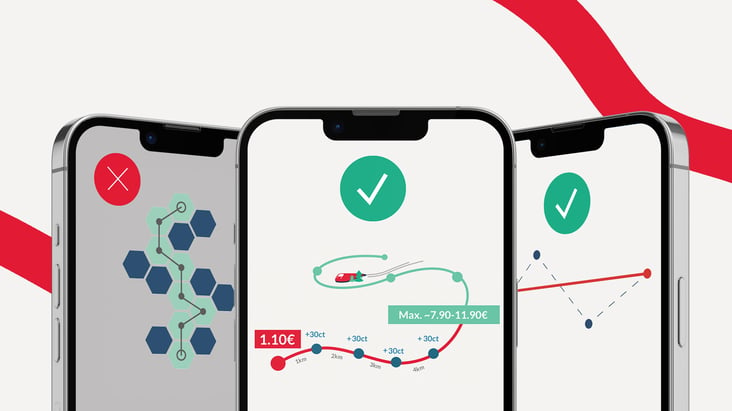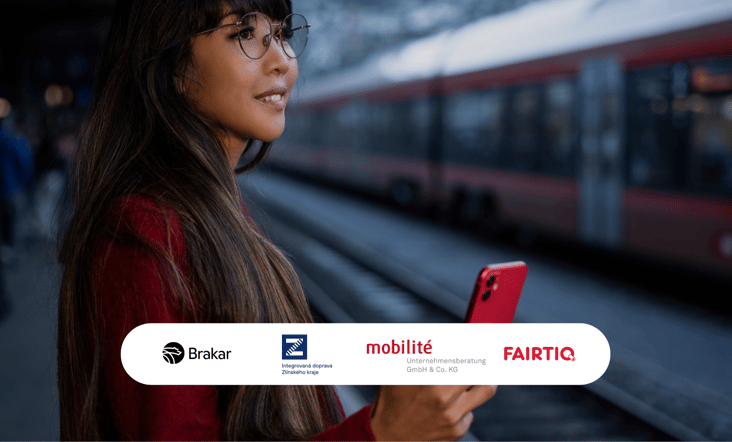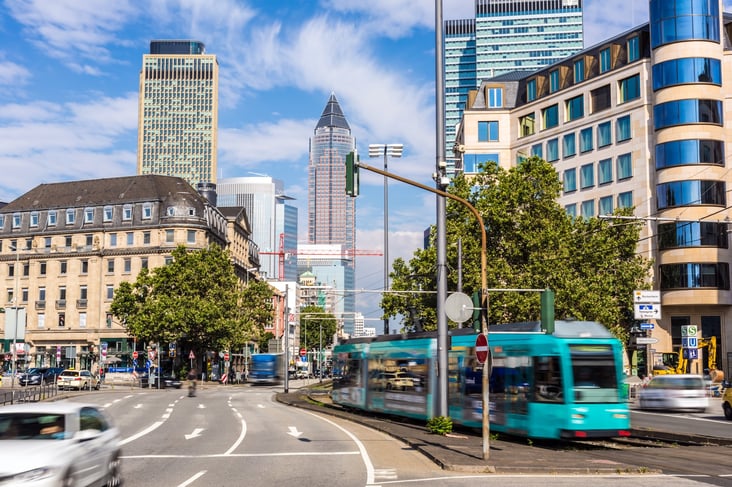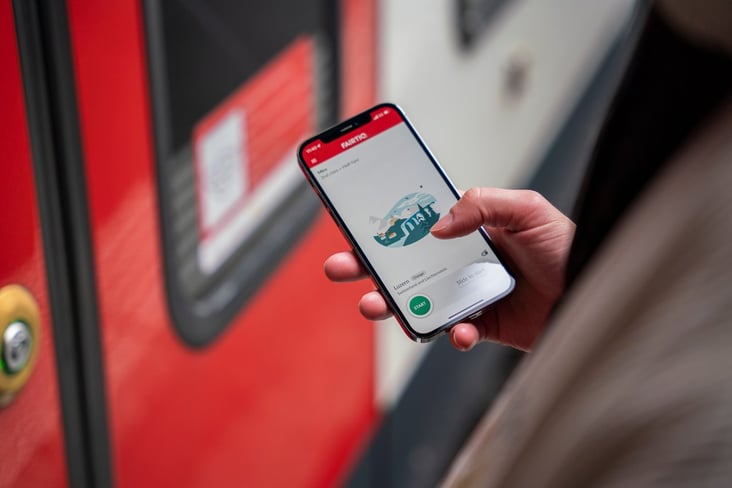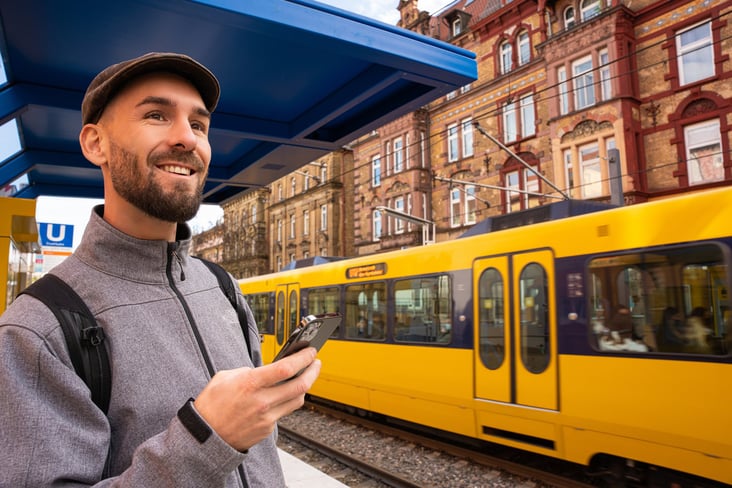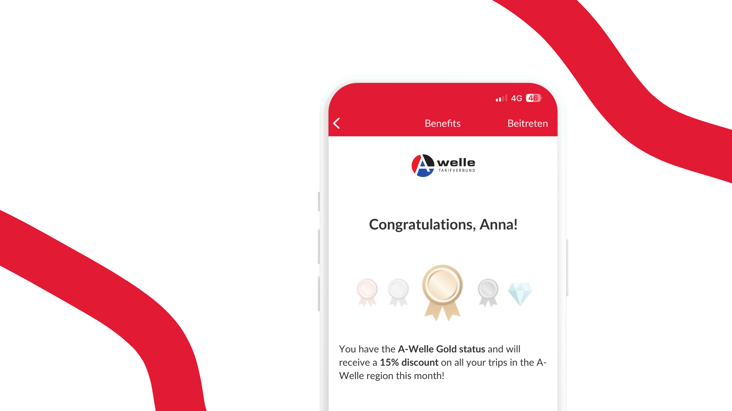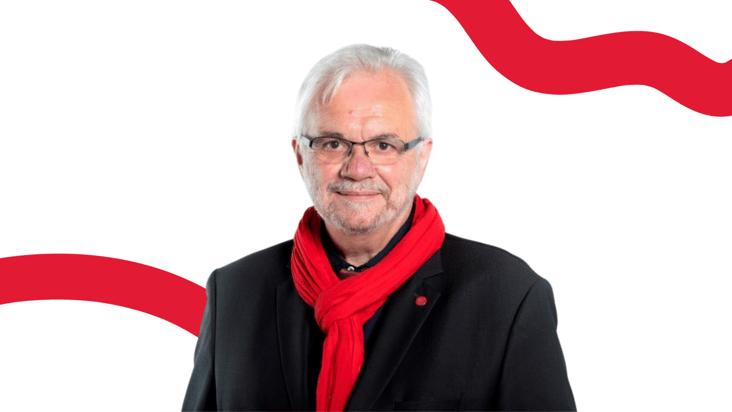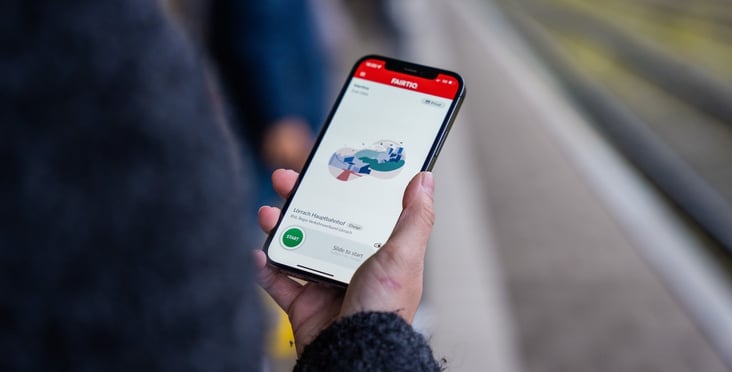.png?width=732&name=Website%20header%20(2).png)
Case Study
Denmark's transition to mobile-first public transport
How Rejsekort & Rejseplan A/S partnered with FAIRTIQ to deliver a nationwide MPAYG solution in six months
Rejsekort & Rejseplan A/S, the industry-owned company responsible for public transport ticketing in Denmark, found itself at a crossroads: its existing card-based ticketing system was nearing the end of its lifecycle and required a modern replacement. The traditional path might have been to issue a lengthy RFP and commit to a nationwide deployment of thousands of updated devices—an approach that often results in complexity and delays.
Instead, Rejsekort & Rejseplan A/S took a bold, user-centred route: it explored the feasibility of a mobile-first approach to revolutionise ticketing in the country. Through a methodical, stepwise process, the organisation tested the waters with a large-scale pilot in 2022. The results spoke for themselves.
Fast-forward to September 2024: the new Rejsekort app was rolled out nationwide, gradually replacing the legacy system set to be fully phased out by 2026. It took just six months from contract signing to national launch — an impressive feat in public transport innovation. While the new system is mobile-first by design, it remains inclusive: ensuring accessibility for people without smartphones or bank cards, and respecting the needs of those who prefer to travel anonymously.
.png?width=100&height=100&name=Untitled%20design%20(14).png) 'This frictionless, inclusive and secure travel experience sets a new benchmark for European mobility,' says Tina Hørbye Christensen, CEO of Rejsekort & Rejseplan A/S. 'We completed the project on budget and on time, and 90% of the users are really happy with the solution. That’s incredibly unusual when we look at international IT projects.'
'This frictionless, inclusive and secure travel experience sets a new benchmark for European mobility,' says Tina Hørbye Christensen, CEO of Rejsekort & Rejseplan A/S. 'We completed the project on budget and on time, and 90% of the users are really happy with the solution. That’s incredibly unusual when we look at international IT projects.'
Understanding Denmark's public transport landscape
Denmark’s public transport network is integrated and far-reaching, with trains, buses, trams and metros connecting cities and rural regions. However, prior to this transformation, the country relied on a chip card–based ticketing system requiring physical check-in/check-out devices and supported up to ten different regional pre-paid ticketing apps. This fragmented approach complicated travel and posed challenges for passengers. For example, the card-based system requires the user to remember to tap off. Forgetting to do so results in an irritating fine for the user, and resolution costs for Rejsekort.
.png?width=100&height=100&name=Untitled%20design%20(14).png) ‘From a business perspective, we needed to replace the old system. But more importantly, there was a great demand for a digital solution among Danish travellers,’ Tina explains. ‘Rejsekort was the only physical card people still had in their wallets,’ Tina adds. ‘Driver’s licences, payment cards, insurance – everything else had already gone digital.’
‘From a business perspective, we needed to replace the old system. But more importantly, there was a great demand for a digital solution among Danish travellers,’ Tina explains. ‘Rejsekort was the only physical card people still had in their wallets,’ Tina adds. ‘Driver’s licences, payment cards, insurance – everything else had already gone digital.’
With increasing expectations for convenience and digitisation, it became clear that a change was overdue. Maintaining or upgrading the existing system would have required substantial investment, making a modern overhaul both a financial and strategic necessity.
Why mobile-first?
The strategic drivers
Denmark’s decision to adopt a mobile-first strategy wasn’t just a technological preference – it was a response to public demand and long-term sustainability goals. Rejsekort & Rejseplan A/S evaluated several ticketing approaches, including open-loop credit card systems (EMV). Ultimately, they chose a mobile-first strategy due to three key priorities:
1 Meeting user expectations
User research revealed strong demand for a simple digital alternative. Danish travellers, already accustomed to cashless payments, frequently requested a smartphone-based ticketing option. MPAYG simplifies travel for passengers - no top-ups, no plastic cards, no forgotten tap-offs - just a seamless, app-based experience.
.png?width=100&height=100&name=Untitled%20design%20(14).png) ‘Danish travellers often asked if they could finally get a digital ticketing solution,’ says Tina Hørbye Christensen, CEO of Rejsekort & Rejseplan A/S. ‘They were already used to cashless payments in almost all other parts of life.’
‘Danish travellers often asked if they could finally get a digital ticketing solution,’ says Tina Hørbye Christensen, CEO of Rejsekort & Rejseplan A/S. ‘They were already used to cashless payments in almost all other parts of life.’
2 Cost-effective and scalable infrastructure
MPAYG offers an infrastructure that’s both cost-effective and highly scalable. Unlike EMV systems, which require extensive hardware investments, MPAYG can bypass costly infrastructure altogether, enabling rapid rollouts across both urban centres and rural communities. What's more, MPAYG empowers transport partners by providing detailed information that supports fair revenue distribution and facilitates the effective improvement of routes and networks. This level of insight is something prepaid ticketing simply cannot provide.
.png?width=100&height=100&name=Untitled%20design%20(14).png) ‘A credit card-based open loop system would’ve required a large investment in infrastructure,’ Tina explains. ‘With MPAYG, we reduced these costs significantly.’
‘A credit card-based open loop system would’ve required a large investment in infrastructure,’ Tina explains. ‘With MPAYG, we reduced these costs significantly.’
3 Meeting political mandates and sustainability goals
A key driver behind RKRP’s decision to implement MPAYG was Denmark’s digital transformation agenda, which includes a mandate for a fully digital, and ultimately, a MaaS (Mobility-as-a-Service) system for public transport.
.png?width=100&height=100&name=Untitled%20design%20(14).png) ‘We are currently phasing out the card-based ticketing system to implement the completely new digital app, which is the new payment system for all of Denmark’s public transport,’ explains Tina Hörbye Christensen, CEO of RKRP. ‘This is part of a national strategy to ensure seamless, digital mobility solutions across the entire network.’
‘We are currently phasing out the card-based ticketing system to implement the completely new digital app, which is the new payment system for all of Denmark’s public transport,’ explains Tina Hörbye Christensen, CEO of RKRP. ‘This is part of a national strategy to ensure seamless, digital mobility solutions across the entire network.’
MPAYG met all criteria—with no need for hardware investment and full compliance with privacy requirements. This approach resulted in a seamless, inclusive and future-proof ticketing solution, perfectly aligned with Denmark’s public policy and user needs. The choice of MPAYG wasn't just about innovation – it was about making the right strategic decision for long-term accessibility, privacy and flexibility.
Staged procurement and rapid implementation
A bold change to a national mobile-first strategy requires confidence that the choice will be accepted, along with an early check on potential challenges. That’s why Rejsekort adopted a staged procurement model designed to balance speed, quality and risk management. The process began with a pilot in North Jutland in mid to late 2022, allowing Rejsekort to evaluate the acceptance of a digital solution among local public transport users. This pilot provided valuable insights into user adoption rates and technical feasibility.
Building on this momentum, a small-scale journey mapping pilot was conducted in Copenhagen at the end of 2022. This pilot focused on identifying and addressing potential challenges to detect journeys correctly in an urban environment - such as navigating deep metro stations, ensuring that any future solution could adapt to Denmark’s unique transport infrastructure.
In early 2023, Rejsekort initiated a SaaS framework agreement tender, which was awarded by mid-2023. This strategic step laid the foundation for the subsequent “mini-tender” process, which focused on selecting a technology partner for the Rejsekort app itself. The app tender was launched in mid-2023 and FAIRTIQ was selected as the technology provider in December 2023.
.png?width=100&height=100&name=Untitled%20design%20(14).png) ‘We chose FAIRTIQ based on a tender process and clear criteria: technical fit, price and user experience,’ says Tina. ‘Their system was ready for nationwide use, based on check-in/check-out, and had a strong track record across Europe.’
‘We chose FAIRTIQ based on a tender process and clear criteria: technical fit, price and user experience,’ says Tina. ‘Their system was ready for nationwide use, based on check-in/check-out, and had a strong track record across Europe.’
Opting for a standardised, off-the-shelf solution proved to be instrumental to the project’s success. The new Rejsekort app launched nationwide within six months of contract signature – on time and on budget. This agility is almost unheard of in large-scale public IT projects.
‘In Denmark, we often think we’re too unique for a standard solution. But this time we said: if something needs changing, we adjust the pricing and zone logic—not the system itself. That mindset saved us time and money’, Tina reflects.
Project Timeline

User-centric design
From the outset, user feedback shaped the app’s evolution. The controlled rollout enabled testing under real-world conditions. An early controlled rollout in April 2024 to 2,000 users reached full capacity in 40 minutes and was then incrementally increased to 60,000 users. Feedback from this group informed further refinements, demonstrating the value of an iterative, user-led process.
.png?width=100&height=100&name=Untitled%20design%20(14).png) ‘We eliminated all the inconveniences of the old system—like forgetting the card, missing check-outs or misreading devices,’ says Tina. ‘According to our travel surveys, 90% of users now say it’s easier to travel by public transport.’
‘We eliminated all the inconveniences of the old system—like forgetting the card, missing check-outs or misreading devices,’ says Tina. ‘According to our travel surveys, 90% of users now say it’s easier to travel by public transport.’
| Previous Rejsekort card-based system | New MPAYG Rejsekort app | |
|---|---|---|
| Ticket medium | Chip card (‘Rejsekort’) |
Mobile app ('Rejsekort app') |
| Infrastructure | Hardware-based readers for tap-in/tap-out | Hardware-free & Smartphone-based |
| Payment | Top up process can be complicated | Easy entry of a mode of payment in the app |
| User travel experience | Manual tap-in at every journey leg and tap-out at the very end of the journey | Single swipe before boarding and single swipe after leaving public transport at the final destination. No action needed while transferring modes. Smart check-out possible. |
Accessibility for all
Although designed as a mobile-first platform, the Rejsekort system is not mobile-exclusive. Approximately 10% of travellers are not expected to not use smartphones or prefer alternative options. In response, to anticipate the retirement of the legacy card system, a card-based pay-as-you-go solution is being developed together with FAIRTIQ.
.png?width=100&height=100&name=Untitled%20design%20(14).png) ‘We’re in the final testing phase, and we want to ensure this works for customers with disabilities or those who prefer physical cards,’ Tina confirms.
‘We’re in the final testing phase, and we want to ensure this works for customers with disabilities or those who prefer physical cards,’ Tina confirms.
This dual offering ensures that no group is left behind, reinforcing Denmark’s commitment to inclusive mobility.
Results and impacts
After just seven months since the launch, the Rejsekort app has seen extraordinary traction across Denmark:
Number of monthly active Rejsekort app users in Denmark, 2024
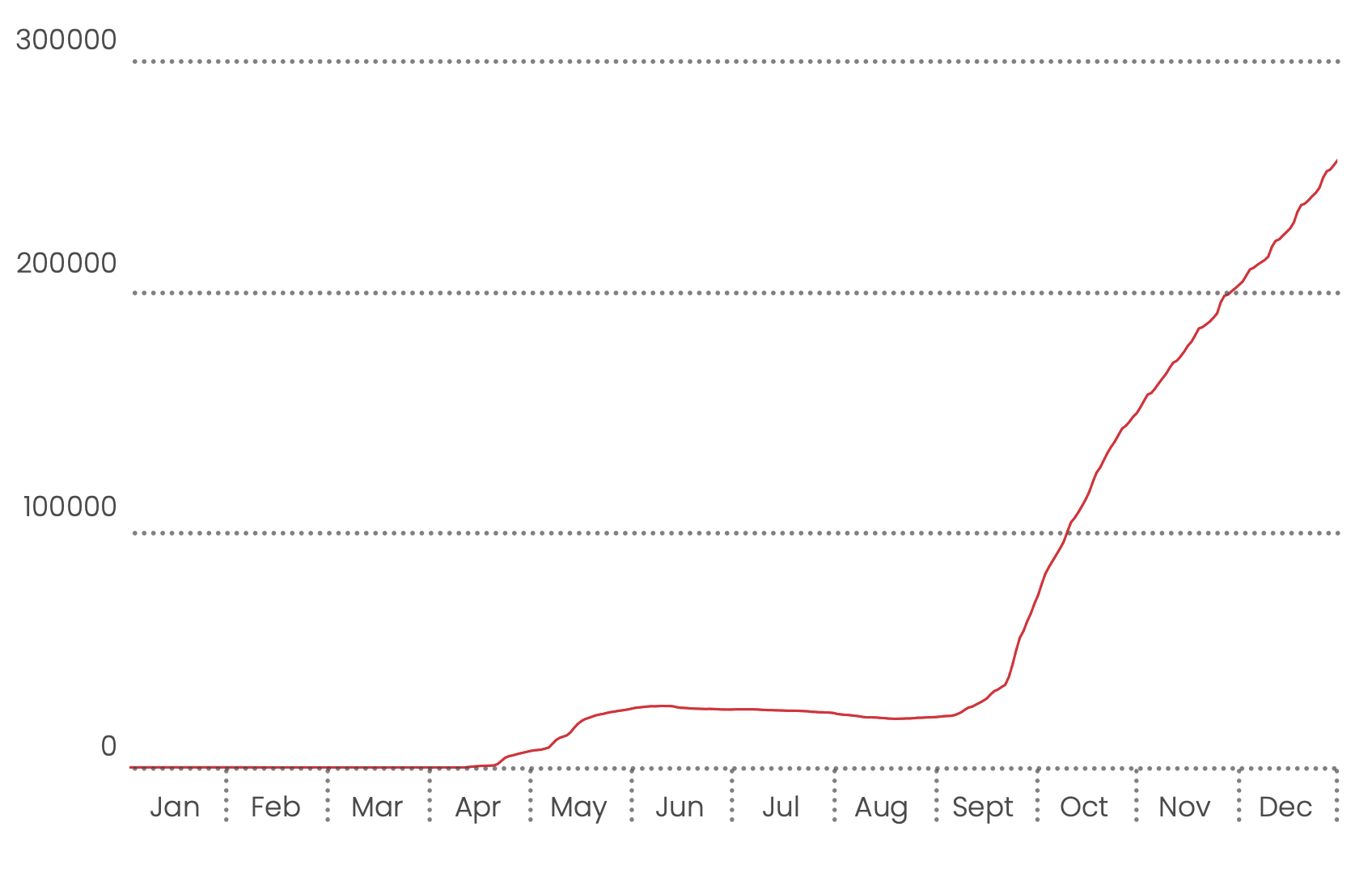
Over 1.5 Million user registrations & more than 1 Million distinct active users
have traveled with one swipe at least once - making it the fastest adoption of a transport app in Denmark's history
Largest onboarding spike at the public launch in September 2024
with more than 325 000 new sign-ups in one single month
User satisfaction above 90%
90% of surveyed travelers say the app 'makes public transport easier' - up from 65% under the old card system.
Nationwide market share above 35% as of May 2025
Just seven months after the public launch, more than 35% of Rejsekort's transactions across rail, bus, tram and metro are now paid via the Rejsekort app - and rising.
‘This is a transformative moment in Danish public transport,’ said Jens Willars, CCO of Rejsekort & Rejseplan A/S. ‘We’re making travel easier and more accessible than ever.’
Summary of impacts
📈 Rapid adoption✅ Project completed on time and budget
⏲️ Lower operational costs due to standardised, software-led deployment
🛍️ High level of satisfaction: 90% of users prefer the new system
🌎 Supports sustainability goals
A scalable model for Europe
The Rejsekort app already allows travel to Malmö in nearby Sweden. As more countries consider digital mobility solutions, the Danish example highlights the potential benefits for regions facing similar fragmentation and infrastructure challenges.
“Many countries believe their transport systems are too unique for standardised solutions. My advice is: think again. A standard solution saves time, money, and just works,” Tina advises.
Denmark’s transition to FAIRTIQ’s mobile pay-as-you-go system shows what’s possible when innovation meets inclusive design and political will. With a rapid rollout, a hardware-free approach, and high public satisfaction, the country has set a new standard for digital mobility. By embracing MPAYG, Denmark has future-proofed its transport infrastructure—without leaving anyone behind.
Let's partner

.png?width=100&height=100&name=Untitled%20design%20(17).png)


